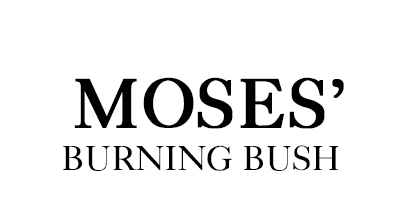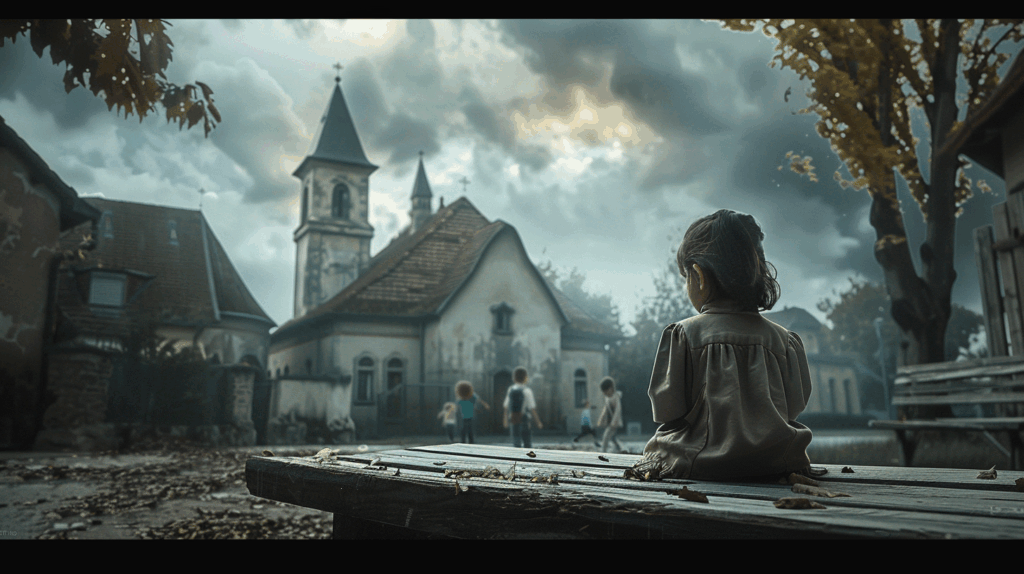.
I’ve attended church since I was young, following my mother in an environment where I had no choice but to believe, not knowing anything—commonly called a cradle faith. The church I went to was led by a pastor claiming strong spiritual power, speaking in tongues, prophesying, casting out demons, and healing the sick. I often followed my mother to revivals, Friday all-night prayers, and dawn services, sometimes living with the pastor or at the church. I heard a lot of prophecies and tongues there, but the memories are always tinged with fear and dread. Prophecies were about someone’s fate—if they didn’t do this or that, they’d be cursed, die this way or that. Once, I heard one directly. The pastor called us in, accusing someone of theft, asking, “You stole this, didn’t you?” We said no because it wasn’t true, but he pressed, “If you didn’t steal it, would it be okay to pray for the thief’s guts to burst and die?” Knowing who the real thief was, I feared they’d actually die, so out of terror, I lied and said we stole it. As a child, I thought, “He says he has a hundred eyes, so why can’t he see this? God isn’t watching over us.” Then he made us pray repentance prayers late at night, sitting on church pews since we lived there. Trying to pray with my eyes closed, I was too scared to speak; opening them, I feared a demon might appear. I couldn’t do anything.
The pastor called my mother a servant of Satan, saying his power was great but the Satan working through her was too strong, exhausting her. My mother grew sicker, blaming it on lack of faith and Satan’s work.When I was young, I was also very physically weak—so much so that even slight fatigue or the slightest touch to my nose would cause nosebleeds to flow like water. And People often referred to me as mentally deficient. People saw me and thought, “Oh, that kid has mental issues,” and I reportedly did odd things. I remember scratching the ground with my nails when things didn’t go my way, collapsing suddenly with strange symptoms, or pounding doors in unexplained fear. At that church, I had frequent nightmares about demons, which he blamed on Satan working through my mother, saying even thinking of her brought Satan’s influence. So, my sister and I were separated from her, living at the pastor’s house, deacons’ homes, or evangelists’ places. Occasionally we lived together, but afterward, we always had to undergo “anointing”—being slapped with palms until our bodies bruised blue, starting around age six or seven. Even when apart, we were summoned for regular anointing for the same reason. We were expelled from the church with her multiple times, left with nowhere to go—spending nights until dawn at playgrounds, narrow alleys, or residential entrances. Secretly, I liked those moments outside, dreading returning to that church. But my mother went back, kneeling at the pastor’s house, begging and being beaten—an unforgettable sight.
Once, at home with no rice, we ate porridge and miso soup when the pastor and some deacons barged in. I don’t recall exactly what he said, but he got angry—perhaps at us eating porridge—yelling at my mother, throwing things, even splashing the soup on her face before storming out. The shock was profound. We lived apart again, and eventually, seeing her face became hard, almost impossible. The last time I saw her was at a prayer retreat bathroom, where she said, “Live well,” and then disappeared. The pastor later claimed she’d abandoned us, insisting we call her, the pastor, “mother.” I didn’t believe it, clinging to that last memory. Two years later, I escaped that place. Church taught me more fear and dread than love—unease, anxiety, discrimination, isolation, and loneliness rather than peace or warmth. I had no allies. Though young, those wounds linger vividly, deeper from within the church.
Then I met the teacher for the first time. Driving, he stopped by a riverbank and spoke to us, explaining why we had to grow up without our parents, being passed from hand to hand, neglected, and raised in such environments—why we had to live that kind of life. He said it was so that we could gain the kind of love that understands and has compassion for those who share the same pain as us, for those who are also wounded and marginalized. He spoke in tongues—not the chilling, fearful kind I’d heard before, but warm and comforting. I sobbed uncontrollably, feeling past wounds melt. Later, I learned he’d orchestrated our escape from that church and reunited me with my mother through him. At first, I didn’t recognize her—so transformed from the sickly, discarded figure the church couldn’t heal into someone vibrantly healthy. Days after living with the teacher, exhaustion triggered a nosebleed—not a normal trickle but a flood that soaked tissues in seconds, requiring towels, spilling into my mouth. People always worried or feared when it happened. Seeing me, the teacher embraced me, praying in tongues, saying, “Child, your nose will never bleed again.” Since then, even with injuries, I’ve never had a nosebleed, my health improved, and my mentally deficient also returned to normal. Nightmares and demon dreams from church days vanished too.
He also showed us evidence. On Jeju Island with him, while he wrote the Word, he told us to sing praises sincerely to receive tongues, unaware then of its importance. We walked a park, half-heartedly praising, mostly playing to pass time. A month later, he laid hands on us, but nothing happened. He said, “You lied,” rebuking us sharply. Shocked, I realized we’d only pretended near hearing distance. He said he’d show us proof—three days and nights later, we’d see something fearful. Sure enough, a possessed sister I called “aunt” came to him, weeping, clinging, saying only he could save her. He warned, “Even if I cast it out, without repentance, it’ll return, and you’ll spit at me and leave.” She begged him to restrain her, even just for that moment, but he insisted she’d go. Yet, at her tearful pleas, he fasted and prayed. He told us how the demon would act through her—unlike her usual self—and described its exit signs, urging us to pray for her without fear. Days later, this familiar “aunt” suddenly asked, “Who are you?” in an alien voice. Chills ran through me, cold sweat broke out, and I froze, unable to speak, fleeing to the teacher in terror. I had heard about it, but actually experiencing the same phenomenon was terrifying… After three days of his fasting prayer, he laid hands on her with prophetic prayer—not “In Jesus’ name, Satan, begone!” or childish inquiries like a shaman’s ritual, but a language beyond human, like “Abba” or “Eli, Eli, lama sabachthani.” We saw what he described—trembling, writhing in heat, calling him God’s messenger, pleading for life in fear. She fainted briefly, and he warned of foaming, trembling, or twisted limbs as the demon left, urging us to pray and wait. It happened—trembling, hands clenching, eyes rolling, foam at the mouth, fainting—terrifying yet exactly as foretold. Afterward, she returned to the “aunt” we knew, but as he predicted, she left. It was a profound testimony. Years later, I received tongues.
In church, tongues involved shouting, “Satan, begone!” “Fire, fire!” “Blood of Jesus!” with shaking bodies—fearful, creepy, unsettling, more like shamanism now that I reflect. But the teacher’s tongues and prophecies were peaceful, enveloping, warm, piercing my heart—sometimes answering my hidden weaknesses and prayers, quoting Scripture, offering rebuke or instruction, or resembling biblical praise. It is also described as ‘wisdom’s poetry’—at times, it resembled the Psalms, and at other times, it brought comfort and consolation. The praise carried a sense of majesty, at times stirring my heart so deeply that I was moved to tears. The tongues, prophecies, and praise I experienced carried true power and authority. If you ever hear that praise, I believe you would realize it’s unlike anything you’ve ever heard anywhere else. I feel ashamed that this is the only way I can express it. It was neither chaotic nor childish. It did not stray from the words of Scripture, nor was it something that happened randomly—only to some and not to others, like a matter of chance.
I consider this truth first because of its unchanging love and the power of that love and grace. It healed my sickness and wounds. Though the wounds and pain may seem healed on the surface, when you look inside, they haven’t healed at all—they’re festering, threatening to tear open again with unbearable pain and suffering. Yet He turned those wounds, that pain and suffering, into treasures, and helped me understand what unchanging love truly is. Unlike churches preaching from a single verse, it’s not borrowed experiences, miracles, lessons, or inspirations. Not split like Sunday school or adult services, it’s accessible to anyone who can comprehend. He urged us to compare it with other religions and scriptures to verify its truth. I’ve read other texts, heard Christian and other sermons—unlike them, He didn’t make us believe unconditionally or teach in a forceful, indoctrinating way like some religions do.
Faith and daily life aren’t separate. Even when a problem arises, within the dynamics of mutual interests, or when I had a small conflict with someone or committed a sin, it didn’t end with simply saying, ‘That was wrong, pray and repent.’ It wasn’t about assigning blame or pointing fingers. Instead, I was led to see what exactly went wrong, how it became a sin, and what I needed to do to correct it. I came to discover more of my own faults. Through the Word, I was taught in detail about my habits, and I was shown how to break free from harmful patterns and begin to change. Although I haven’t completely escaped those habits yet, I am in the process of gradually being transformed. Everyone knows they should stay away from sin and evil, and that such things are wrong. But I had never met anyone who could actually show me how to break the habits that keep repeating within sin and evil. He helped me see all my limitations and everything within my heart laid bare—dissected and revealed within the truth. The words of the Bible were applied to me personally and even in my daily life. They helped resolve problems, and he received and answered every question I had about all the things I’d been curious about throughout my life. As Scripture says the truth comprehends all, he took every question—tens of thousands—answering fully. No genius could handle such volume. Through this, I glimpsed God’s wisdom—beyond our grasp, unbound by form or frame, free, alive, vast, beyond expression.
.
.
.

